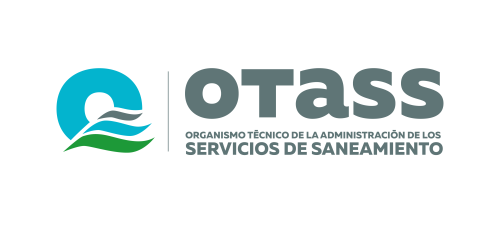- 5 de marzo de 2025
This month is a possibility to celebrate the success of one of our extremely effective business owners and merchants. Not Sir Richard Branson or Sir James Dyson, but a person knighted for making terrific theater. Progression Sir Nicholas Hytner, that this month is celebrating 10 years as creative director of the National Theatre. As priests and financial experts battle to locate a basis for a successful new economic climate, Hytnerachievements use some valuable signposts.
In his organization with the National
Hytner has actually been in charge of staging a string of programs combining important acclaim with box-office draw. To name just 3: the adjustment of Philip PullmanHis Dark Materials, more just recently, One Guy, 2 Guvnors, and the worldwide smash hit, War Steed. My favourite was London Road, an extremely powerful musical made up entirely of verbatim neighborhood reaction to the 2006 serial murders in Ipswich.read about it https://more2screen.com from Our Articles
Appropriately, Hytner is best understood for his success as a truly wonderful manufacturer and supervisor. However he is likewise the head of a business with a yearly turn over of £pound; 80m, one that made a surplus in 2015 and purchased new facilities, in spite of a significant cut in Arts Council funding.
And he is an innovator, not just on the stage however, for instance, in the Travelex season, providing tickets to both prominent and sophisticated programs – around a fifth of which go to new visitors – for £extra pound; 12. And when Hytner leaves his blog post, which he says he will do in the following couple of years, it will be in the wake of a £extra pound; 70m capital investment (the majority of which has actually already been raised) to change the theatrehome on the South Bank.
Hytner is just one of a number of extremely effective leaders of British social establishments who have come to be household names. Neil MacGregor of the British Gallery and the TateNicholas Serota are various other notable examples. Their success, along with lots of others in the market, is based on some easy, connected and effective concepts.
Firstly, the best arts and heritage organisations are highly entrepreneurial. Theyre constantly on the look-out for brand-new products and services, extremely effective at establishing their brand, and – lesson one for the remainder of British sector – agree to make bold, long-term financial investments to secure their organisationfuture in a highly competitive and fast-changing globe.
Second, although almost all our significant arts organisations get some public financing, the very best leaders see this less as a kind of aid and more as a stream of financial investment to permit development and diversity. This is just as well. The National Theateraid has fallen by 15% in actual terms in the last 4 years and arts financing is bound to be in for even more hefty cuts in the following costs testimonial.
Third, Hytner and his successful peers are really responsive to the obstacles and opportunities produced by the increase of electronic web content and the development of brand-new international audiences for British material. One of Hytnertechnologies is NT Live, which broadcasts the most effective of the theatrework from the London stage to cinemas across the UK and all over the world and aided to produce a worldwide audience in 2014 of 3.2 million.
Fourth, the most successful cultural organizations reject a simple distinction in between artistic quality and commercial material. At the top of these organisations, there is typically a powerful collaboration between creative and industrial management. As executive supervisors, Nick Starr, Kate Horton and Vikki Heywood might not have had the exact same account as their corresponding imaginative opposite numbers Hytner, Dominic Cooke at the Royal Court and Michael Boyd at the Royal Shakespeare Company. But the success of their organisations comes from a level of co-operation and joint dedication that many exclusive and public firms wish for.
Although it still increases the hackles of Tory free-market diehards, in the governmentpursuit for development, coalition ministers, particularly Vince Cable television and David Willetts at the Division for Company, Advancement and Skills, have actually been willing to discuss the demand for industrial technique. Life sciences, advanced manufacturing and power are all the topic of industrial methods and government financial investment. Yet, perhaps partially due to the fuzzy limits of the industry, innovative sectors do not seem to be on the radar in spite of the fast-growing international market for innovative items and services.
If we were to have an innovative industry commercial method, a hard concern it would require to attend to lies in the partnership in between the openly subsidised, premium arts industry et cetera of a market that incorporates everything from marketing to shoot em up computer game.
Despite cuts in arts funding and the elimination of straight subsidy for the liberal arts in higher education, the sectorself-appointed spokespeople, such as the typically forthright Hytner, caution that the well spring for future growth might run dry. It sounds like good sense and other countries, including Germany, are guarding arts moneying while cutting various other budgets. But the reputable proof is pretty limited. Unlike design, when it comes to work in innovative sectors, there is generally no shortage of people with the credentials or appetite to fill them.
Yet organizations such as the Tate and National Theater should definitely be seen as both business and cultural success tales. Relatively modest quantities of public financing have levered in multiples of revenue from paying consumers, industrial companions and philanthropists. Along with the direct substantial earnings, there is the broader impact in tourism and, bigger still, the British brand name abroad. All this from artefacts and occasions that enhance our culture and brings satisfaction and enlightenment to millions.
Possibly this, too, is a lesson for bigger industry
From both commentators and business leaders, there is a growing acknowledgment that long-term organization success depends upon companies being concentrated on an objective to produce terrific services and products that profit clients and culture. Companies that market their hearts for investor returns likewise, in time, lose their method.
There may be occasional objections of over-hyped and overcrowded blockbuster art programs, of the expanding gift shops, and also the National Theater has its turkeys. However there is little doubt that what drives individuals such as Hytner is the love of their art kind and the burning desire to open up its treasures to a wider target market. So, as well as congratulating Sir Nicholas on his 10 years, we should be following the lessons he needs to show. Lessons regarding the imagination, entrepreneurialism and corporate ethos Britain needs to take, a high road to economic growth. And proceeding enjoyment.
 Nicholas HytnerNational Theater offers a design template for British service |










